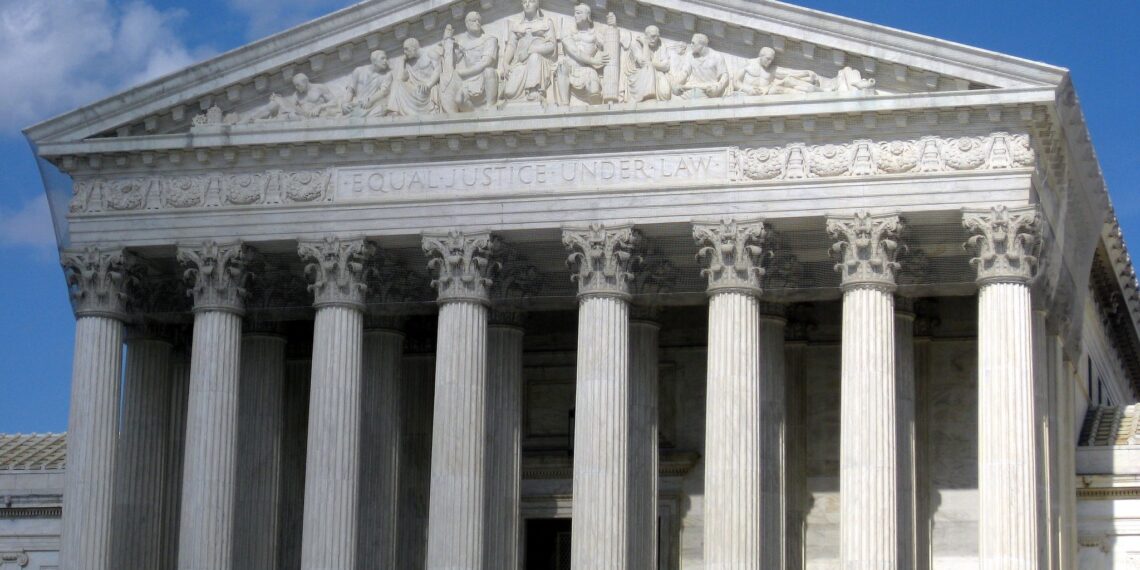[ad_1]
OPINION ANALYSIS
on Feb 21, 2024
at 5:04 pm

Justice Brett Kavanaugh delivered an unanimous opinion for the court on maritime insurance contracts. (Wally Gobetz via Flickr)
Nothing in Wednesday’s decision in Great Lakes Insurance v. Raiders Retreat Realty surprised anybody familiar with last fall’s oral argument. The argument revealed a bench deeply skeptical of the uncertainty maritime insurance contracts would face under a lower-court decision limiting the enforcement of choice-of-law clauses in those contracts. Justice Brett Kavanaugh’s opinion for a unanimous court squarely rejects that decision, going out of its way to call for predictable enforcement of those clauses.
To offer a bit of background, commercial contracts often include provisions that call for litigation in a particular forum (a forum-selection clause) and for the application of the law of a particular jurisdiction (a choice-of-law clause). Often, when the parties are from different jurisdictions, they select a neutral forum and its law. In this case, for example, a European insurance company insured a yacht owned by a Pennsylvania company. The contract, like most American marine insurance contracts, called for the application of New York law. The parties disputed the enforcement of that contract because application of Pennsylvania law (favored by the customer Raiders Retreat Realty) would expose the insurer (Great Lakes Insurance) to a tort action not available under New York law.
Kavanaugh’s opinion starts by emphasizing the constitutional underpinnings under which “federal courts … create and apply maritime law,” which always have “contemplate[d] a system of maritime law coextensive with, and operating uniformly in, the whole country.” In that framework, Kavanaugh explains, federal courts follow previously “established” maritime rules, and “[i]n the absence of an established rule,” they either create “uniform maritime rules” or “apply state law.”
For Kavanaugh, then, the “initial question here is whether there is an established federal maritime rule regarding the enforceability of choice-of-law provisions,” and the “answer is yes.” Although the Supreme Court itself has not spoken directly to that question in recent years, Kavanaugh points to “a leading treatise” and the “consisten[t]” decisions of the federal courts of appeals, as well as a scattering of marginally relevant references in Supreme Court cases of prior centuries.
Most important, though, are two relatively recent decisions enforcing maritime forum-selection clauses, The Bremen v. Zapata Off-Shore Co. and Carnival Cruise Lines v. Shute. Kavanaugh notes that the “context” of forum-selection clauses is “analogous” to the choice-of-law clauses here, and that “courts historically have expressed more skepticism of forum-selection clauses than of choice-of-law clauses.” Accordingly, he reasons that those decisions “dictate the same conclusion for choice-of-law provisions.” He continues, echoing some of the strongly worded comments by Justice Sonia Sotomayor at the oral argument, to emphasize that strong enforceability of choice-of-law clauses “facilitates maritime commerce by reducing uncertainty and lowering costs for maritime actors.” In particular, referring to a “friend of the court” brief filed by marine insurance underwriters, he asserts that choice-of-law provisions “enable marine insurers to better assess risk,” and also “can lower the price and expand the availability of marine insurance.”
At that point, Kavanaugh turns to the yacht owner’s principal argument, the precedential force of the 1955 decision in Wilburn Boat Co. v. Fireman’s Insurance Co., a maritime insurance case in which the Supreme Court called for the application of a state rule of decision in an area lacking an established federal maritime rule. Kavanaugh finds the decision of no consequence here, because “that case did not involve a choice-of-law provision,” but rather the question of “what substantive rule applied when a party breached a warranty in a marine insurance contract.” Kavanaugh noted the insurer’s argument that the salience of uniformity in more recent maritime cases like The Bremen and Carnival Cruise Lines undermined the continuing relevance of Wilburn Boat but concluded that “we need not resolve any tension because Wilburn Boat does not control the analysis of choice-of-law provisions in maritime contracts.” For one thing, he “reiterate[d that] Wilburn Boat did not involve a choice-of-law provision, and … therefore affords limited guidance on that distinct issue.” For another, “Wilburn Boat rested on the difficulty of creating substantive maritime insurance law from scratch,” a “concern [that] is absent when the question is whether the parties may choose the governing law to apply.” For what it is worth, the only justice who wrote separately in the case, Justice Clarence Thomas, offered a detailed critique of Wilburn Boat concluding that little “if anything is left of Wilburn Boat’s rationale.”
Perhaps the most important part of the opinion will be the concluding section (Part III), in which Kavanaugh explains that, as the argument suggested, the exceptions to the enforceability of the clauses are “narrow”: They apply only “when the chosen law would contravene a controlling federal statute [or] conflict with an established federal maritime policy,” or “when the parties can furnish no reasonable basis for the chosen jurisdiction.” In this case, there is no contention that the choice of New York law infringes on “any federal statute or established federal maritime policy.”
On the third exception, Kavanaugh approves the choice of New York law – despite the absence of any relation between New York and the parties or the performance of the contract – by quoting the description in the Restatement (Second) of Conflict of Laws of New York’s “commercial law” as “well-known and highly elaborated.” That passage is particularly important because of the reluctance, in many state-law contexts, of courts to enforce choice-of-law clauses that select the law of a jurisdiction with no connection to the parties or the transaction.
Finally, Kavanaugh rejects the yacht owner’s suggestion that “federal maritime law should recognize an additional exception when enforcing the law of the [chosen] State … would contravene the fundamental public policy of the State with the greatest interest in the dispute.” Kavanaugh responds that “[a] federal presumption of enforceability would not be much of a presumption if it could be routinely swept aside based on 50 States’ public policy determinations,” and he concludes that “the ensuing disuniformity and uncertainty … would undermine the fundamental purpose of choice-of-law clauses in maritime contracts: uniform and stable rules for maritime actors.”
As I suggested above, the broad outlines of this decision can startle nobody. The most surprising thing probably is that the court has not spoken to this question in the years since it decided The Bremen and Carnival Cruise Lines. My guess is that this decision, like those, will be routinely and frequently used to bring future litigation over the enforcement of these clauses to a swift and conclusive end.
[ad_2]




